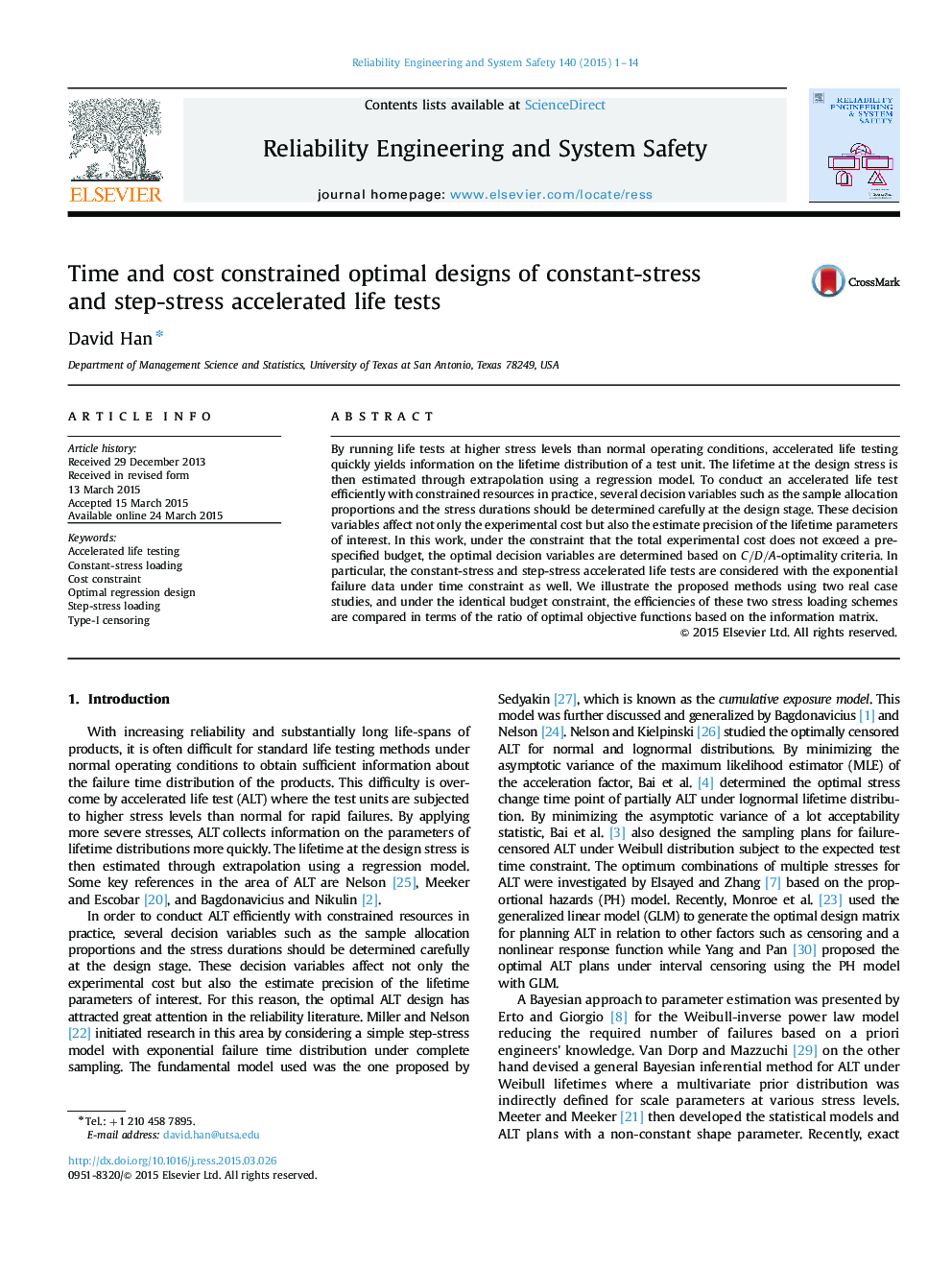| Article ID | Journal | Published Year | Pages | File Type |
|---|---|---|---|---|
| 7195598 | Reliability Engineering & System Safety | 2015 | 14 Pages |
Abstract
By running life tests at higher stress levels than normal operating conditions, accelerated life testing quickly yields information on the lifetime distribution of a test unit. The lifetime at the design stress is then estimated through extrapolation using a regression model. To conduct an accelerated life test efficiently with constrained resources in practice, several decision variables such as the sample allocation proportions and the stress durations should be determined carefully at the design stage. These decision variables affect not only the experimental cost but also the estimate precision of the lifetime parameters of interest. In this work, under the constraint that the total experimental cost does not exceed a pre-specified budget, the optimal decision variables are determined based on C/D/A-optimality criteria. In particular, the constant-stress and step-stress accelerated life tests are considered with the exponential failure data under time constraint as well. We illustrate the proposed methods using two real case studies, and under the identical budget constraint, the efficiencies of these two stress loading schemes are compared in terms of the ratio of optimal objective functions based on the information matrix.
Related Topics
Physical Sciences and Engineering
Engineering
Mechanical Engineering
Authors
David Han,
